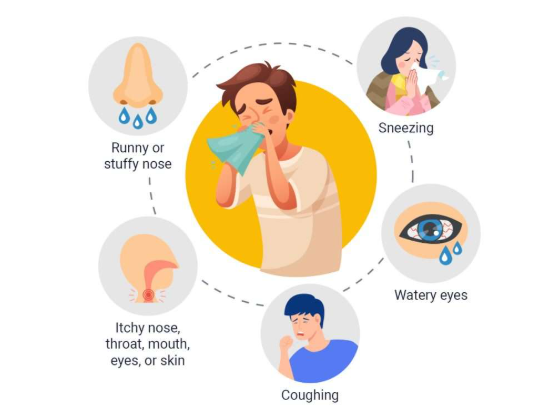
Expert Care at Dr Agneesh Patial’s Insight ENT Clinic And Daycare Centre
Do you often find yourself sneezing uncontrollably, struggling with a stuffy, itchy, and runny nose? If so, you may have hay fever, also known as Allergic Rhinitis.
Affecting millions worldwide, allergic rhinitis is a common allergic reaction triggered by airborne allergens such as pollen, dust, mold spores, or pet dander. When your immune system overreacts to these harmless substances, it causes inflammation in the nasal lining, leading to a host of uncomfortable symptoms. While not life-threatening, allergic rhinitis can leave you feeling drained and unwell.
What Causes Allergic Rhinitis?
Allergic rhinitis occurs when the immune system mistakenly identifies harmless airborne particles as a threat. This triggers the release of histamine, a chemical responsible for allergy symptoms.
Common Allergens That Trigger Allergic Rhinitis:
- Pollen: Released by trees, grasses, and weeds, especially during spring and fall.
- Dust Mites: Microscopic creatures that thrive in household dust and can trigger year round allergies.
- Mold Spores: Mold grows in humid environments, releasing spores that can be inhaled.
- Pet Dander: Proteins found in pet skin cells, saliva, and urine can cause allergic reactions.
Who is at Risk?
Certain factors can increase your chances of developing allergic rhinitis:
- Family History: If your family has a history of allergies, asthma, or eczema, you’re more likely to develop allergic rhinitis.
- Environmental Exposure: High pollen counts, pollution, and tobacco smoke can contribute to allergies.
- Existing Allergies or Asthma: Individuals with asthma or eczemaare at a higher risk.
- Gender: Males are more likely to develop allergic rhinitis in childhood, though the prevalence evens out in adulthood.
Recognizing the Symptoms
Symptoms of allergic rhinitis can range from mild to severe and often include:
- Frequent sneezing– Uncontrollable sneezing, especially after allergen exposure.
- Runny or Stuffy Nose– Clear, watery nasal discharge or congestion.
- Itchy Nose, Eyes, or Throat– Persistent itchiness that can be frustrating.
- Watery & Red Eyes– Excessive tearing and irritation.
- Postnasal Drip– Mucus dripping down the throat, leading to coughing or a sore throat.
- Fatigue & Discomfort– Poor sleep and constant congestion can leave you feeling drained.
How to Prevent Allergic Rhinitis?
Although allergic rhinitis is common, there are several ways to reduce your exposure and minimize symptoms:
- Avoid Allergens: Stay indoors during peak pollen times, use air purifiers, and keep windows closed.
- Keep Your Home Allergen-Free: Regularly clean bedding, carpets, and furnitureto reduce dust mites and mold.
- Wear a Mask: If pollen levels are high, wearing a mask outdoorscan help filter out allergens.
- Avoid Smoking: Tobacco smoke can worsen symptoms, so avoid exposure to smoking and second hand smoke.
When to Seek Medical Help?
While self-care measures can help, if your symptoms persist or worsen, it’s time to seek expert medical care.
At Dr Agneesh Patial’s Insight ENT Clinic And Daycare Centre Centre in Mumbai, we specialize in diagnosing and treating allergic rhinitis with personalized treatment plans to help you breathe easier and live comfortably.
Email: insightent2021@gmail.com
Call/WhatsApp: +91-9769150823
Don’t let allergies control your life take the first step toward relief today!

